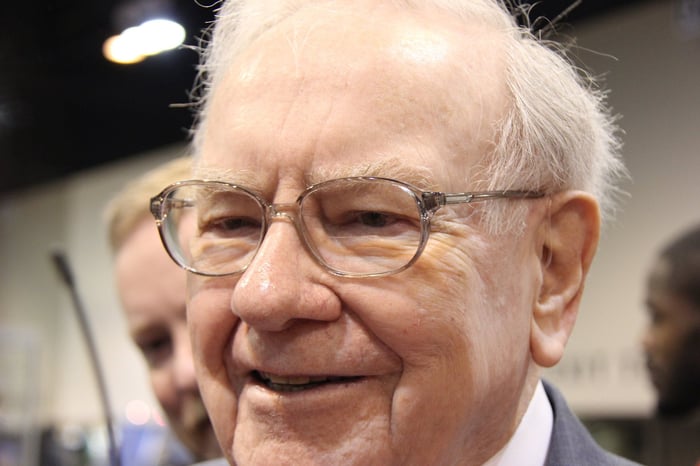Warren Buffett is one of the most successful investors of all time. Therefore, when his holding company Berkshire Hathaway adds to a stock holding, it's often because of sound reasoning.
In the second quarter, the company upped its position in the pharmaceutical and medical-supplies distributor McKesson (MCK 0.84%). Berkshire Hathaway added 276,369 shares to its position in the company, to bring its total position to nearly 3.2 million shares.
Should you add McKesson to your portfolio? Let's dig into the company's fundamentals and valuation to answer that question.
A business model that's the lifeblood of healthcare
The launch and production of medicines, vaccines, and medical supplies are critical to the healthcare industry. But these goods are worthless if they can't make it into the hands of hospitals, pharmacies, and patients when the need arises. McKesson played a central role in the distribution of pharmaceuticals and COVID-19 vaccines throughout the pandemic, as it gets these goods from point A (manufacturers) to point B (hospitals and pharmacies).
The company recorded $67.2 billion in revenue during its first quarter for the period ending June 30. This was 7.1% higher than revenue from the year-ago period. What was behind the large-cap company's solid growth for the quarter?
McKesson's revenue growth was mostly driven by its predominant pharmaceutical segment, which handles prescription drugs, COVID-19 vaccines, and other products. Growing overall demand for prescription drugs and specialty products helped segment revenue surge 13.9% higher year over year to $56.9 billion in the quarter.
McKesson generated $5.83 in non-GAAP (adjusted) diluted earnings per share (EPS) during the first quarter, which was up 4.9% year over year. The company's razor-thin net margin contracted 13 basis points to 1.3% for the quarter, which was mostly due to a much higher effective tax rate for the period. However, this was more than offset by a 7.7% decline in McKesson's weighted-average diluted share count, stemming from share repurchases.
As the global population grows older, people are more likely to be diagnosed with chronic medical conditions, and demand for McKesson's services will only grow. That's why analysts believe that the company's adjusted EPS will grow 9.5% annually through the next five years.

Warren Buffett. Image source: Getty Images.
The dividend has rapid growth potential
McKesson's 0.6% dividend yield isn't going to be appealing to income investors, considering that the S&P 500 index yields 1.7%. But the healthcare company offers more-than-enough dividend growth to compensate for the minimal starting income it provides to new shareholders.
McKesson's dividend-payout ratio will come in at about 8% in its current fiscal year. (Yes, you read that right.) This will give the company the flexibility to execute acquisitions and share buybacks while also continuing double-digit dividend hikes as it has for the last couple of years.
A wonderful business at a fair price
McKesson is a fundamentally robust company. This has been demonstrated by the stock's impressive performance -- up 77% over the past year alone. Yet McKesson still doesn't look unreasonably valued.
The stock is trading at a forward price-to-earnings (P/E) ratio of 13.6, which is only slightly higher than the medical-distribution industry's forward P/E ratio of 12.6. For the most dominant medical-distribution company in the industry, that valuation is hardly an excessive amount for dividend-growth investors to pay for purchasing the company.



